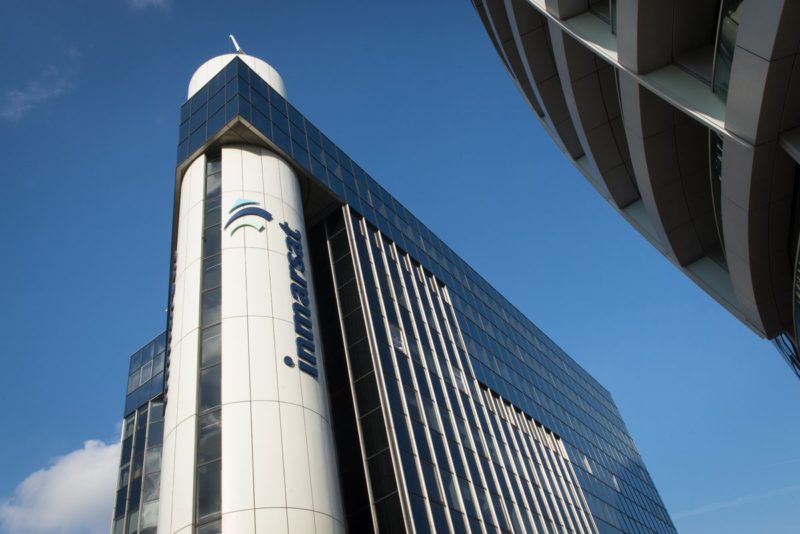Latest News

Inmarsat’s London Headquarters. Photo: Inmarsat
Following the rejection of a $3.2 billion takeover bid from EchoStar, U.K. satellite operator Inmarsat is now under pressure to show its vision of the future, said Berenberg satellite equity analyst Sarah Simon in a July 12 research note. EchoStar has made two bids to acquire Inmarsat, but has been met with stiff resistance. The $3.2 billion follow-up offer was made July 6 and then quickly withdrawn after Inmarsat said the bid “significantly undervalued the company.” While Simon believes that EchoStar’s pursuit of the company “now puts pressure on Inmarsat’s management to lay its cards on the table,” she is also skeptical that any combination between Echostar and Inmarsat will be consummated, due to a lack of any obvious material synergies between the two companies.
“Given the confidence of Inmarsat’s board that [EchoStar’s bid] significantly undervalues the company on a standalone basis, we expect some pressure from shareholders for management to back up this claim with some positive communication,” Berenberg said. “Shareholders need to be careful with what they wish for, however; those who have followed the stock over recent years have witnessed the results of what can happen if management looks through rose-tinted glasses. Visibility and timing of any value crystallization remains limited, in our view, and our price target suggests downside to the current share price. We do expect management to be pressured by shareholders into providing more details on the pathway to medium-term value creation, which could reassure investors for now.”
Regarding Inmarsat’s diverse business in key segments, Simon referenced the operator’s first-quarter 2018 results, which showed the operator with slowing government revenues, but 60 percent profit margin in its aviation business. She expects these trends to reverse for Inmarsat in the second quarter. “Within government, [Inmarsat’s manufacturing contract with] Boeing, which is take-or-pay and inherently lumpy, was at its lowest in Q1 and should be higher in the remaining three quarters of the year,” she said. “With regards to aviation, we expect that the timing of increased equipment installations, aviation exhibitions and joint marketing with airline partners could result in Q2 being the lowest aviation margin quarter of the year. We therefore forecast a material drop in aviation margin from 60 percent in Q1 down to 40 percent for Q2.”
Speculation about Inmarsat’s next moves will likely continue over the next few months. While the operator’s share price has been boosted by recent activity, Berenberg seems likely to keep its “hold” rating on the stock and still remains cautious about its prospects for growth. “With ongoing speculation likely to continue, and perhaps a now more bullish management stance, we expect this premium could continue over the coming months,” said Simon. “M&A aside, however, we do not believe the shares offer value at the current levels.”
Get the latest Via Satellite news!
Subscribe Now